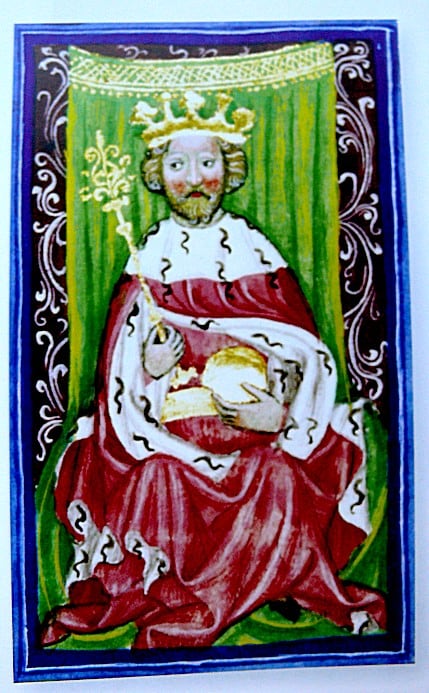11.7. 1346 Charles IV elected King of Rome
Categories: Personalities , Calendar
 In 1346 Charles IV was crowned King of Rome, which was a prerequisite for the later award of the imperial crown. Financially, however, he bled.
In 1346 Charles IV was crowned King of Rome, which was a prerequisite for the later award of the imperial crown. Financially, however, he bled.
This is because what we now call bribes were a perfectly legal means of power in medieval politics. "But Charles knew how to handle himself. He began to give from the property of the Jews. Which of course works best when the owner doesn't protest, in other words, is dead. In this way he met the people's wish to punish the culprits of the plague and at the same time the wish of some town halls to seize Jewish property," says Jan A. Novák in his book Charles IV - Mystic and Sorcerer.
Pope Clement VI was instrumental in Charles' election. In order to assert himself in power, the monarch had to clearly increase his efforts. Hitherto legitimately elected, but by Pope Clement IV. the Roman Emperor Louis the Bavarian (he was elected King of Rome in 1314 and received the imperial crown in1328) was not about to relinquish his title or his power, even though the Pope declared him deposed and declared an ecclesiastical curse on him.
Charles IV had a tough fight ahead of him, but once again fortune helped him, as Louis of Bavaria died unexpectedly of a heart attack while hunting on October 11, 1347, thus solving the whole problem. Charles IV was then recognised as the new King of Rome by those parts of the German Empire that had previously supported his late rival.
"The status quo between the Church and Charles IV. was respected in the Czech Kingdom thanks to the personalities of the first two archbishops of Prague, Arnost of Pardubice and Jan Ocek ofVlašim, who belonged to the circle of the king's closest confidants," writes Vladimír Liška in his book Karel IV. - Mysteries and Mysteries.
When Charles decided to establish a university in Prague after his accession to the Czech throne, it was Arnošt of Pardubice who was entrusted by the king at the head of the Czech delegation to negotiate with Pope Clement VI, to obtain his approval for this plan. The establishment of higher learning could not have been accomplished without the Pope's consent, for universities were subject only to ecclesiastical law, but theologians had a determining influence in them.
This mission soon became a success, for as early as January 1347 the pope issued a charter to the Bohemian legation authorizing the establishment of the Prague universityannouncing that in the aforementioned city of Prague, general learning would flourish for all time to come in any permitted field of study.
Sources. Novák, Charles IV - Mystic and Sorcerer, www.wikipedia.org
The article is included in categories: